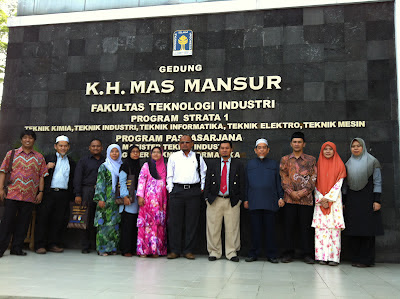I am honoured to have my article published in The Brunei Times daily today, while I am here in Brunei.
The title of the article is "Seven Principles of Islamic Development Based on Malay Islam Monarchy (MIB)". It expresses my conviction that the Brunei's State Philosophy, the MIB, is a fertile ground for a realization of a holistic Islam, including in development.
But to ensure a more systematic endeavors for this, the long term development planning Brunei Vision 2035 is proposed to have seven Islamic-based principles relating to its mold (Islamic worldview), actor (servants and vicegerent of God), time scale (past, present and forthcoming worlds), framework (fard ain), methodology (ibadah), means (natural resources), and ultimate aim (pleasure of God, mardhatillah).
Similar idea was also presented in my paper at The 5th International Conference on Borneo Islam 2012 today. The title of the paper is "The Principles of Islamic-Based Development: A Theoretical Proposal for Malay Islam Monarchy (MIB) in Brunei Darussalam.












